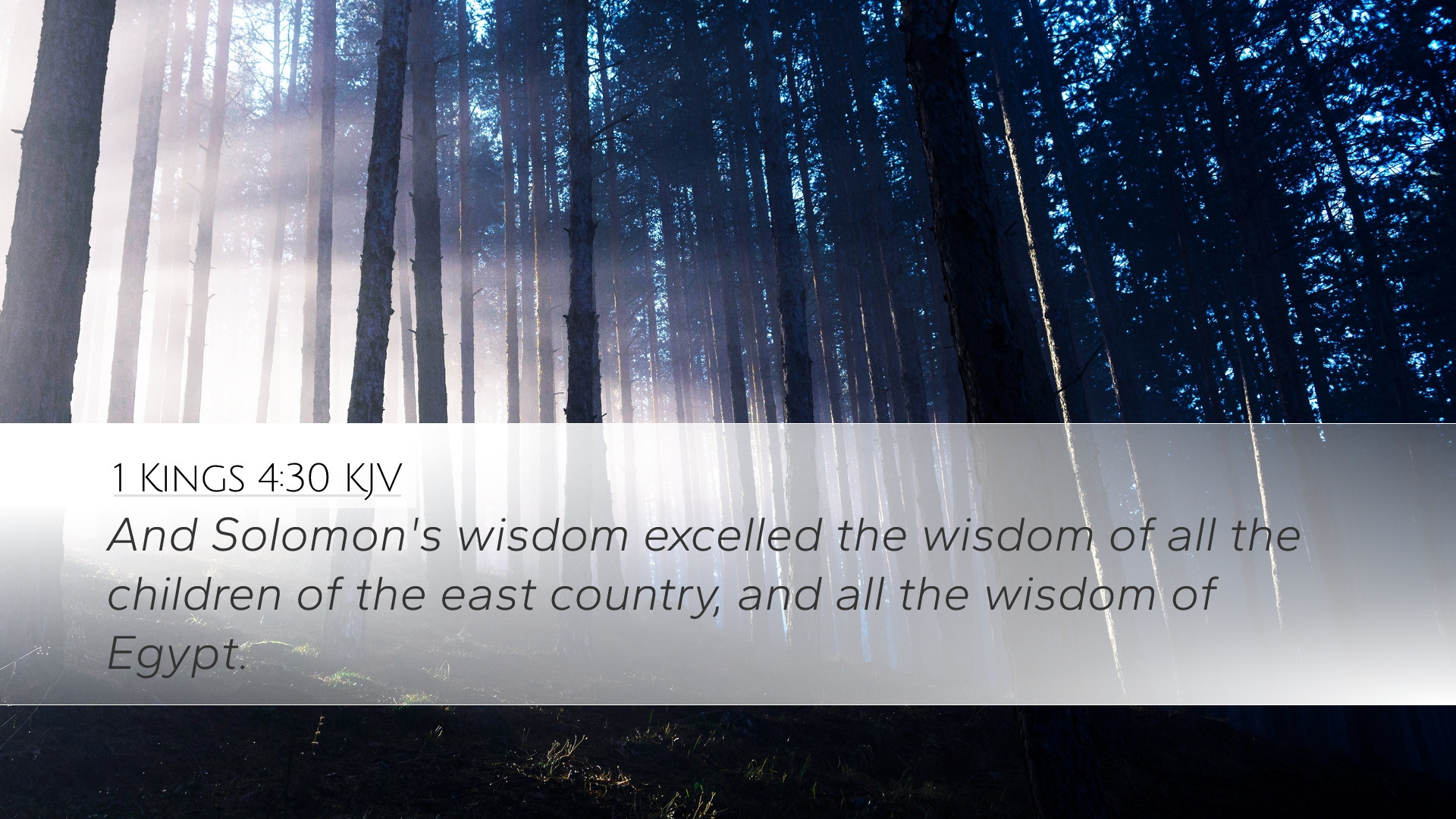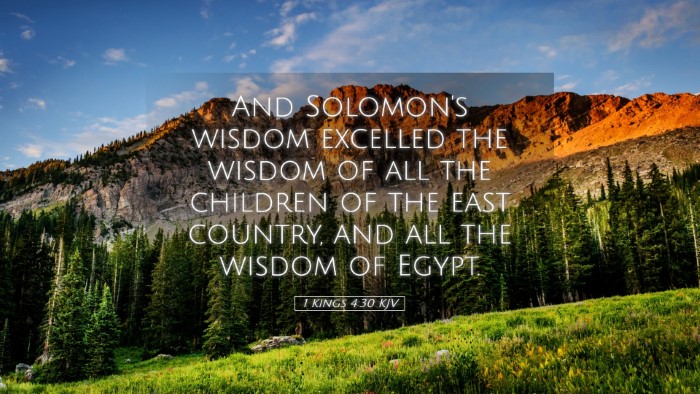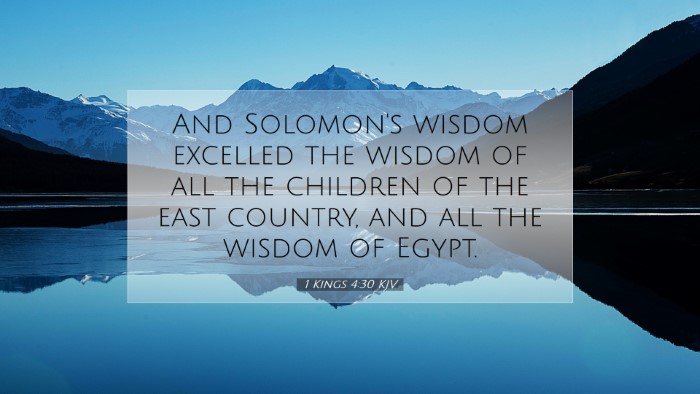Commentary on 1 Kings 4:30
Verse: 1 Kings 4:30 - "And Solomon's wisdom excelled the wisdom of all the children of the east country, and all the wisdom of Egypt."
Introduction
This verse presents a critical affirmation of Solomon's unparalleled wisdom, distinguishing it from the wisdom surrounding him in the ancient Near East, particularly that of the Egyptians and other eastern nations. The significance of Solomon’s wisdom is a central theme throughout the narrative of his reign and merits an examination from various theological perspectives.
Insights from Commentators
Matthew Henry's Commentary
Matthew Henry emphasizes Solomon's wisdom as a divine gift that surpasses any earthly understanding. He points out that the "children of the east" likely reference cultures known for their sagacity, such as the Chaldeans and Syrians. Henry asserts that Solomon's wisdom is a testament to God's providential choice of Solomon for leadership, reflecting God’s promise given at Gibeon (1 Kings 3:5-14). Henry stresses that wisdom is not merely the accumulation of knowledge but an ability to discern justice and righteousness, which Solomon embodied.
Albert Barnes' Notes on the Bible
Albert Barnes provides further context by contrasting Eastern wisdom with Egyptian learning. He notes that wisdom in the East was often associated with practical and ethical knowledge, while Egyptian wisdom was rooted in philosophy and literature. Solomon's wisdom, however, was comprehensive, encompassing both practical governance and profound insights into human nature and spirituality. Barnes also implies that Solomon’s fame was such that it attracted visitors and envoys from distant lands, notably the Queen of Sheba, highlighting the international implications of his wisdom.
Adam Clarke's Commentary
Adam Clarke expands on the cultural implications of this wisdom narrative. He indicates that the phrase "wisdom of all the children of the east" includes diverse philosophies and traditions, yet Solomon's wisdom remained supreme. Clarke draws attention to the nature of wisdom itself, defining it as not only intellectual prowess but also a harmonious relationship with God. He emphasizes that Solomon's wise judgments and abilities were reflective of his personal relationship with the Divine, which enabled him to govern effectively and justly.
Theological Implications
This verse opens several theological avenues worth exploring:
- The Divine Source of Wisdom: The recognition of Solomon's wisdom as a divine endowment emphasizes the biblical understanding that true wisdom comes from God (James 1:5).
- Wisdom in Leadership: The implications of wisdom in leadership become apparent here; the effective governance and prosperity of the nation directly correlated with the king's wisdom.
- Comparative Wisdom: By comparing Solomon’s wisdom with that of other nations, the text invites deeper reflection on the nature of wisdom across cultures, highlighting the uniqueness of biblical wisdom.
- The Role of Wisdom in Society: The verse underlines wisdom's critical role in societal well-being, suggesting that leaders and authorities must seek divine wisdom in their governance for the good of their people.
Applications for Today’s Church
Understanding Solomon’s wisdom provides several practical applications for contemporary church leaders, students, and theologians:
- Seeking God’s Guidance: Just as Solomon sought wisdom from God, church leaders today must seek divine counsel in decisions affecting their congregations.
- Promoting Righteousness: Wisdom rooted in biblical principles must guide the moral and ethical frameworks of modern believers.
- Developing Discipleship: Training church members in wisdom—understanding scripture and applying it to daily life—should be a primary goal of discipleship programs.
- Engaging Culture: The church must engage with cultural wisdom, discerning what aligns with biblical truth, much like Solomon did with the observed wisdom of his time.
Conclusion
In conclusion, 1 Kings 4:30 is not merely a historical assertion but a profound theological statement regarding the nature of wisdom. As discussed by Matthew Henry, Albert Barnes, and Adam Clarke, Solomon's wisdom exceeds that of those around him, illustrating God’s intention for his leadership and the prosperity of Israel. For today’s church, this verse serves as a call to earnestly seek divine wisdom, engage with culture through a biblical lens, and lead with righteousness rooted in comprehensive understanding. The legacy of Solomon's wisdom continues to be relevant, encouraging a pursuit of knowledge that is deeply intertwined with faith and action.


